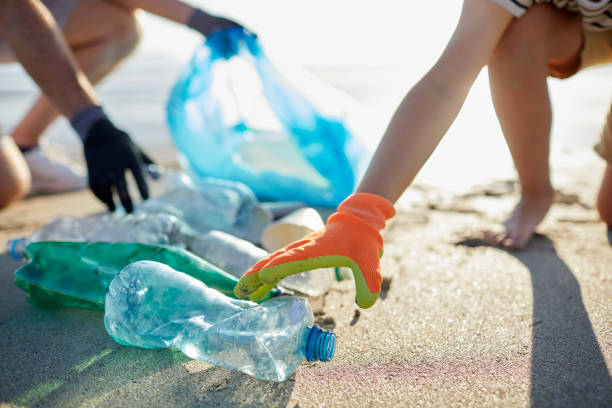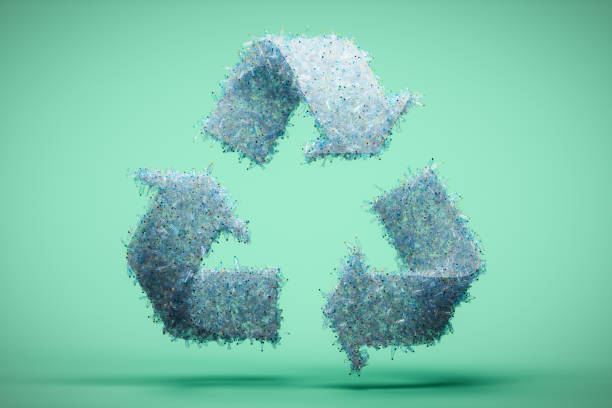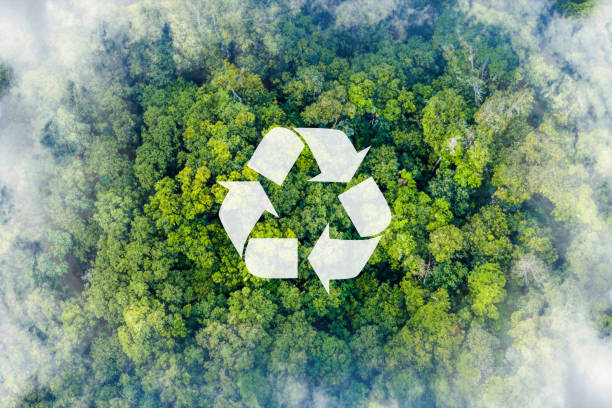Recycling is important to reduce waste, conserve resources, and reduce pollution. Nigeria generates over 32 million tons of waste every year, and only recycles about 2% of it. It is important to note that increasing the recycling rate in Nigeria has the potential to save millions each year, reduce the country’s reliance on landfills, conserve natural resources, and create jobs. This article provides more detail.

Introduction
Waste will continue to increase for as long as humans continue to exist, consume, and use recyclables like plastic, metals, glass, paper, and electronics. The World Bank estimates that the world currently generates about 2.01 billion tons of municipal solid waste (MSW) each year. This is the waste that comes from households, businesses, and institutions, and it includes things like food scraps, paper, plastic, metal, and glass. The World Bank also estimates that as nations and cities urbanize, waste generation will increase by as much as 70% by 2050, from 2.01 billion tons to 3.40 billion tons. In other words, the world is producing more and more waste, and this trend is expected to continue in the future, with at least 33% not managed in an environmentally safe manner and instead mismanaged through open dumping or burning. This threatens environmental sustainability because waste can pollute the environment and contribute to climate change. However, it also presents an opportunity for waste-to-wealth creation.
Recycling and the Global Market
The global recycled plastics market has seen rapid growth as a result of the increasing consumer awareness of the environmental impact of improper plastic/waste disposal and government regulations promoting the use of recycled plastics. The market reached a value of $52.94 billion in 2023 and is expected to grow at a CAGR of 4.9% to $64.05 billion in 2027.

Source: Statista
On the other hand, the global plastic waste management market is seeing growth and is projected to progress from $35.4 billion in 2022 to $37 billion in 2023 and nearly $44 billion by 2027, with major players such as Veolia (France), Stericycle (United States), SUEZ (France), and Terracycle (United States). Countries worldwide recycle and compost between 10% and 75% of their waste. For instance, Germany is currently leading in recycling with a rate of 76.64% and 69.32%, respectively. However, Costa Rica and Turkey are at the bottom of the recycling rates in the world at 6.6% and 12.3%, respectively. For more context, the Food and Agriculture Organization of the United Nations (FAO) revealed that the global economy is losing an estimated $2.6 trillion per year from food waste. This includes the cost of wasted food, materials, and energy, as well as the environmental and social costs of waste. Recycling and composting are important ways to reduce waste and conserve resources. Recycling converts waste into new materials and products, reducing the need to extract, transport, and process virgin materials. Composting converts organic waste materials into nutrient-rich soil, which can be used to fertilize plants and improve soil health.

Recycling and the Nigerian Economy
Nigeria with a growing population of over 200 million people, generates over 32 million tons of waste every year. It is considered one of the top 10 plastic polluters in the world with 2.5 million tons of plastic as of 2023. Over 400 billion kilograms of plastic is produced yearly, less than 12% of this waste is recycled in Nigeria, and about 80% ends up in landfills and unregulated dump sites. However, the fact that only half of these plastics are single-use presents a separate kind of opportunity that can help achieve SDG 12 (Responsible consumption and production)and help to reduce waste, conserve resources, and reduce pollution. The world is losing billions by not recycling, and according to the World Economic Forum, the global cost of mismanaged waste is about $2.2 trillion per year. This includes the costs of environmental damage, public health impacts, and lost economic opportunities.
It’s hard to measure how much Nigeria is recycling because the field is largely informal with limited data available. However, a 2023 study by the Cambridge Publications Academic Research and Publications has revealed that Nigeria could save up to 585,116.2515 kWh of energy from recycling 30 tons of metal/iron, which could save the country around N117,023,250.29 (at an exchange rate of N200/kWh). Another study published in 2019 estimated that Nigeria could save up to N100 billion annually from recycling plastic waste and this is expected to create over 200,000 jobs and reduce greenhouse emissions by over 100 million tons. It is important to note that Nigeria recycles only about 2% of its waste compared to a global average of 13%. Suppose the recycling rate in Nigeria could be increased to the global average. In that case, it has the potential to save billions of dollars each year and reduce the country’s reliance on landfills, conserve natural resources, and create jobs.
State of Recycling in Nigeria
Unlike aluminum, copper, brass, iron, paper, and glass, albeit relatively cheap, Polyethylene Terephthalate (PET) plastic is the most profitable in Nigeria and it costs an average price of 80-100 naira per kg which can amount to substantial cash if collected in large volumes. Plastic recycling contributes to the number of jobs in Nigeria as the entire value chain from collectors, sorters, machine operators, engineers, and plant managers requires labor and mostly limited skills and technical know-how. The recycling industry in Nigeria currently employs thousands of people, and as the industry continues to grow, there are expected to be more job opportunities in the field. The recycling value chain is expected to amount to 80,000 direct jobs and 120,000 indirect jobs related to supporting operations like equipment manufacturing, facility construction, maintenance, and administration by 2025.

The Nigerian government has implemented several policies, including the National Plastic Waste Management Policy, a ban on Single-Use Plastics, and the Extended Producer Responsibility (EPR) Scheme for Plastic Waste. The plastics EPR system was launched in 2022 and requires producers of plastic packaging to fund collection and recycling infrastructure such as waste bins, collection and recycling centers. However, out of more than 1000 plastic producers in Nigeria, only 31 companies, including well-known brands like Coca-Cola, Nigerian Breweries, and Unilever, have registered and paid into the industry-run Producer Responsibility Organizations (PRO) that was set up and coined the Food and Beverage Recycling Association (FBRA). The EPR policy also made it possible for producers who invest in collection and recycling systems to be eligible for a tax break to encourage companies to invest in recycling and to reduce the burden on the government and taxpayers. Other policies like the Federal Plastics Management Policy have set targets to eradicate single-use plastic by 2028 and ensure that packaging in markets is recyclable and biodegradable by 2030. A proposed tax on the production and consumption of goods and services that are harmful to the environment, which the producer or the consumer will pay, called the green tax, was also implemented and will require a lot of necessary groundwork to not only determine the impact of the policy on vulnerable communities, but also explore alternatives for manufacturers and retailers and the allocation of tax revenues.
Conclusion
There are formal and informal ways to tap into the recycling market in Nigeria. Some of the business opportunities in the industry include collection and transportation, processing, and manufacturing of recyclable materials. The recycling market in Nigeria has abundant investment opportunities. According to the Nigerian federal government and United Nations Development Programme’s (UNDP’s) Imagine Nigeria report team, the green economy holds an investment potential of $250 billion in Nigeria. The Lagos State Waste Management Authority (LAWMA) also reported that the recycling industry in Lagos State generated N18 billion in value in 2021, which shows that it is a profitable industry with the potential to grow even more.
Nonetheless, despite the significant challenges in recycling in Nigeria, there are opportunities in waste management that cannot be realized without public awareness, adherence, advocacy, and strict penalties for reckless waste disposal in the country. Countries like Kenya, Rwanda, and 32 other countries have implemented nationwide plastic taxes or bans, but Nigeria has not done much in that regard. All stakeholders involved including the government, international organizations, other non-state actors, and individuals, have a role to play in changing consumption and production patterns that are not sustainable through financial and technical support.


